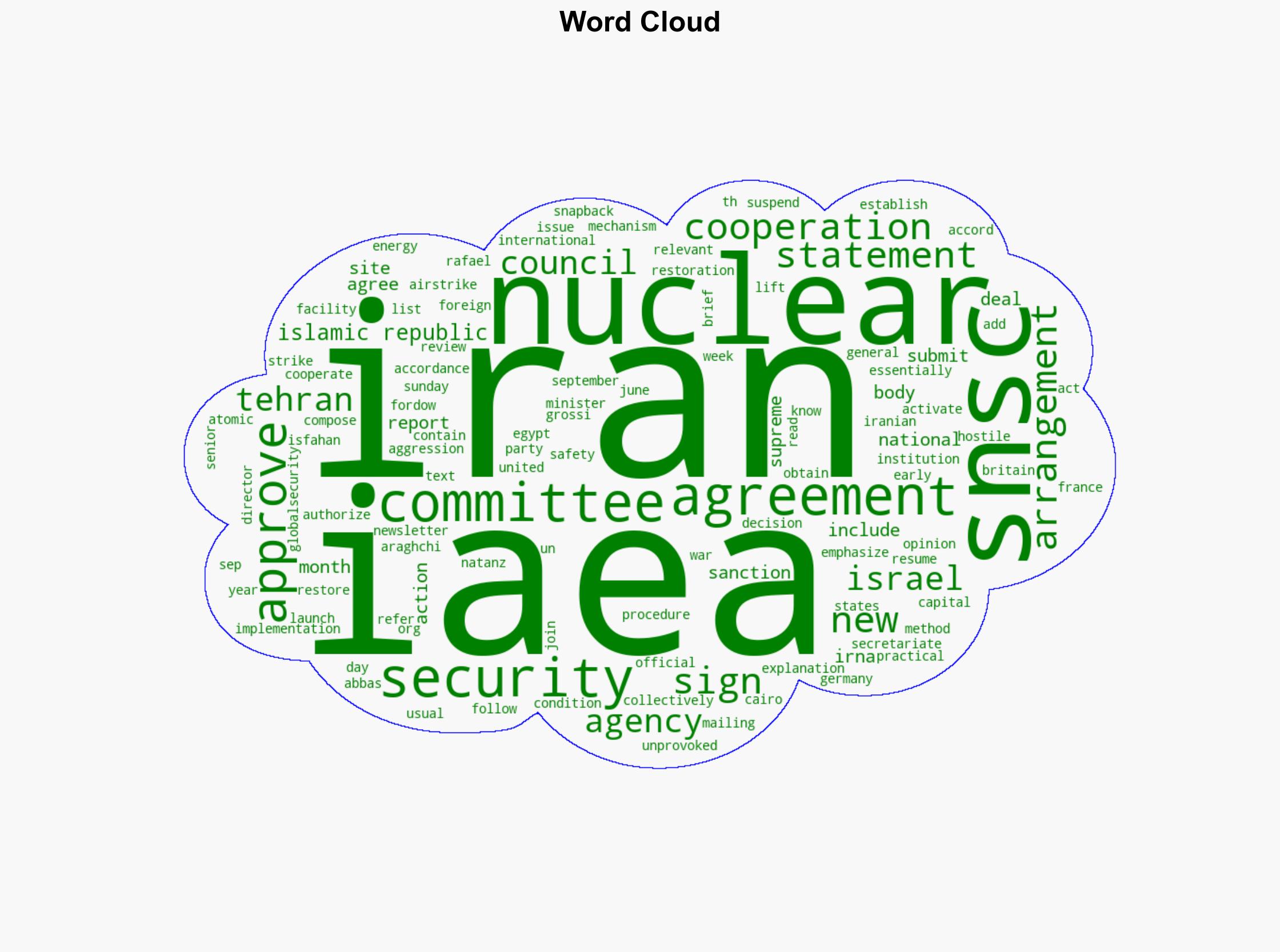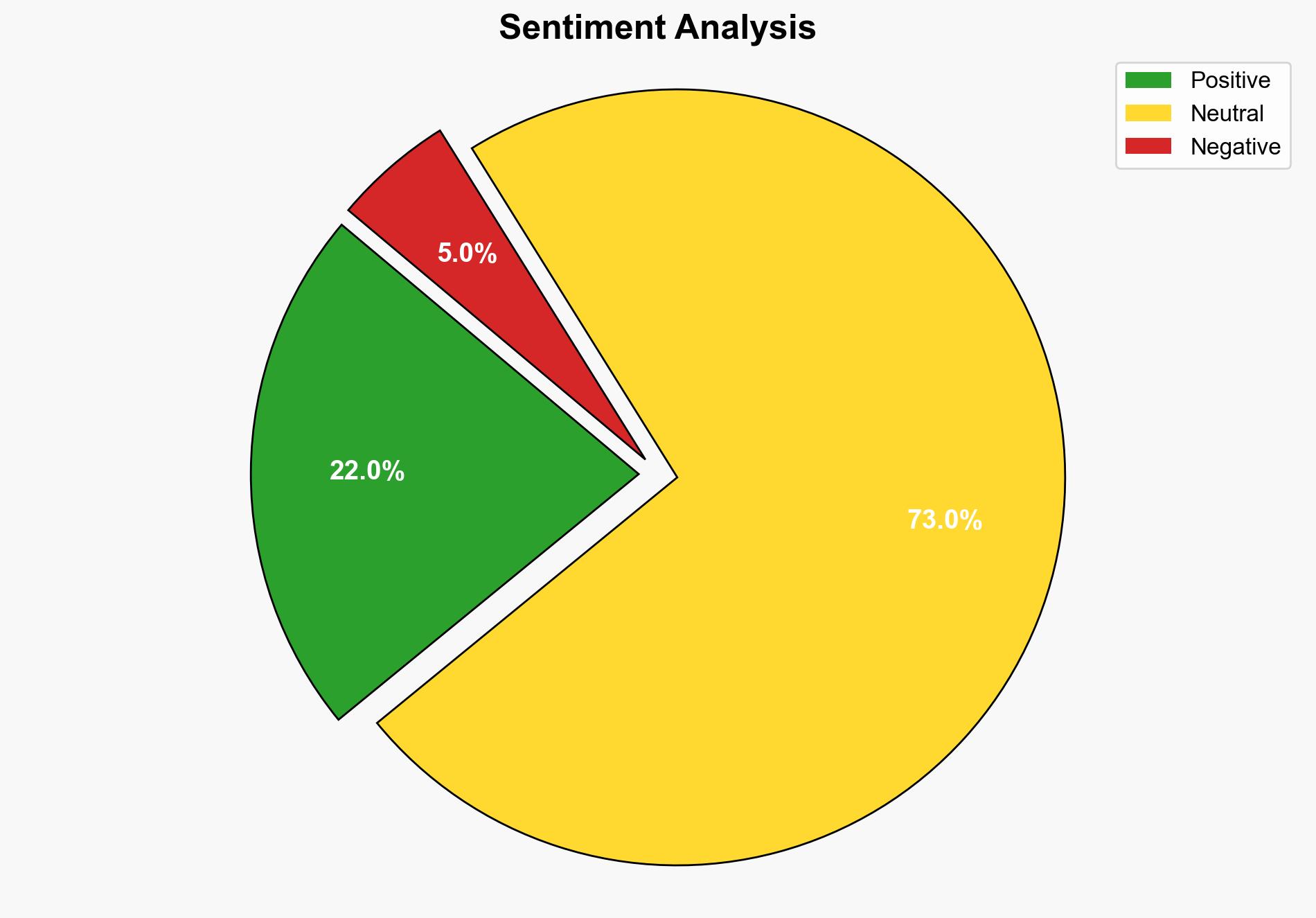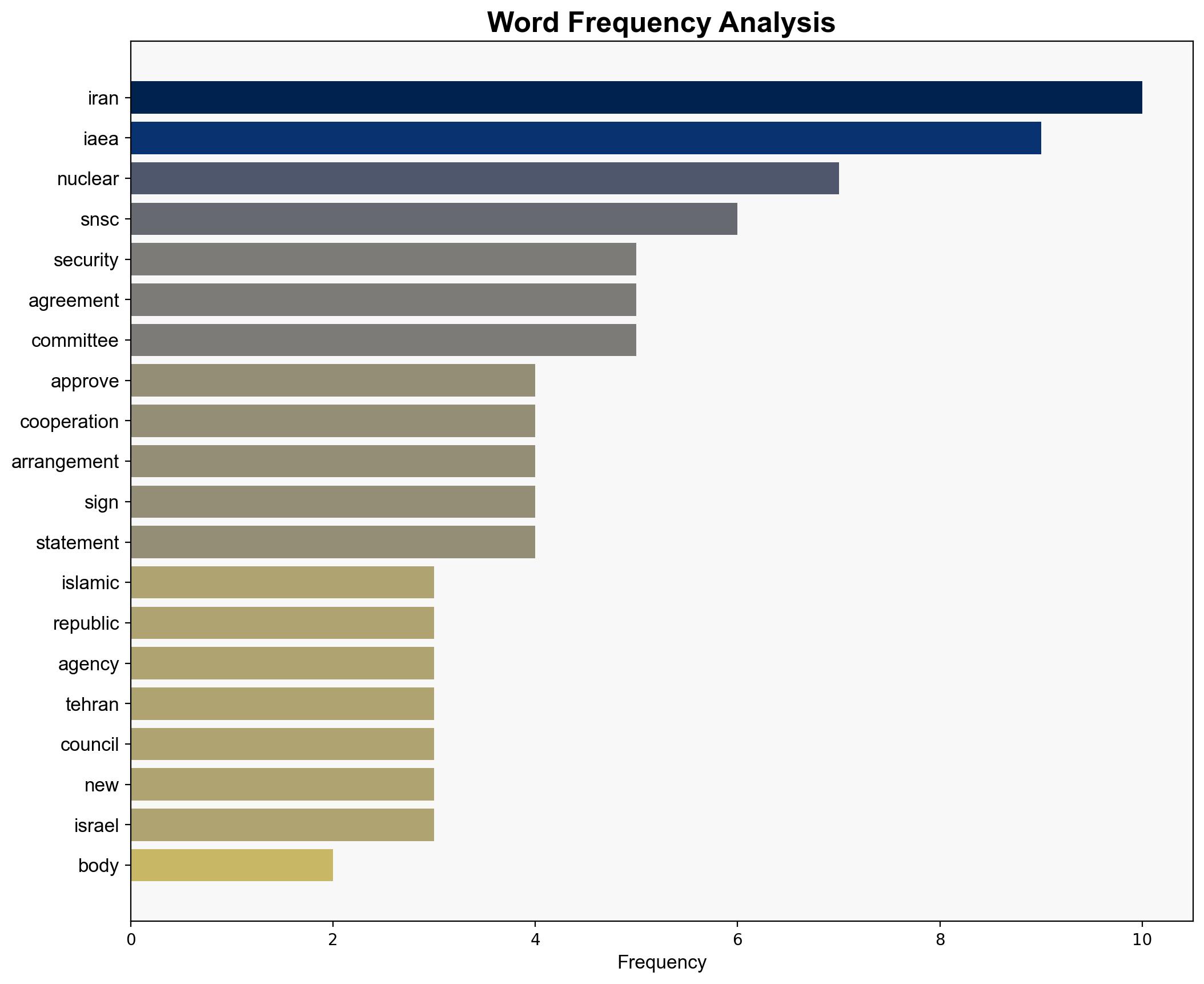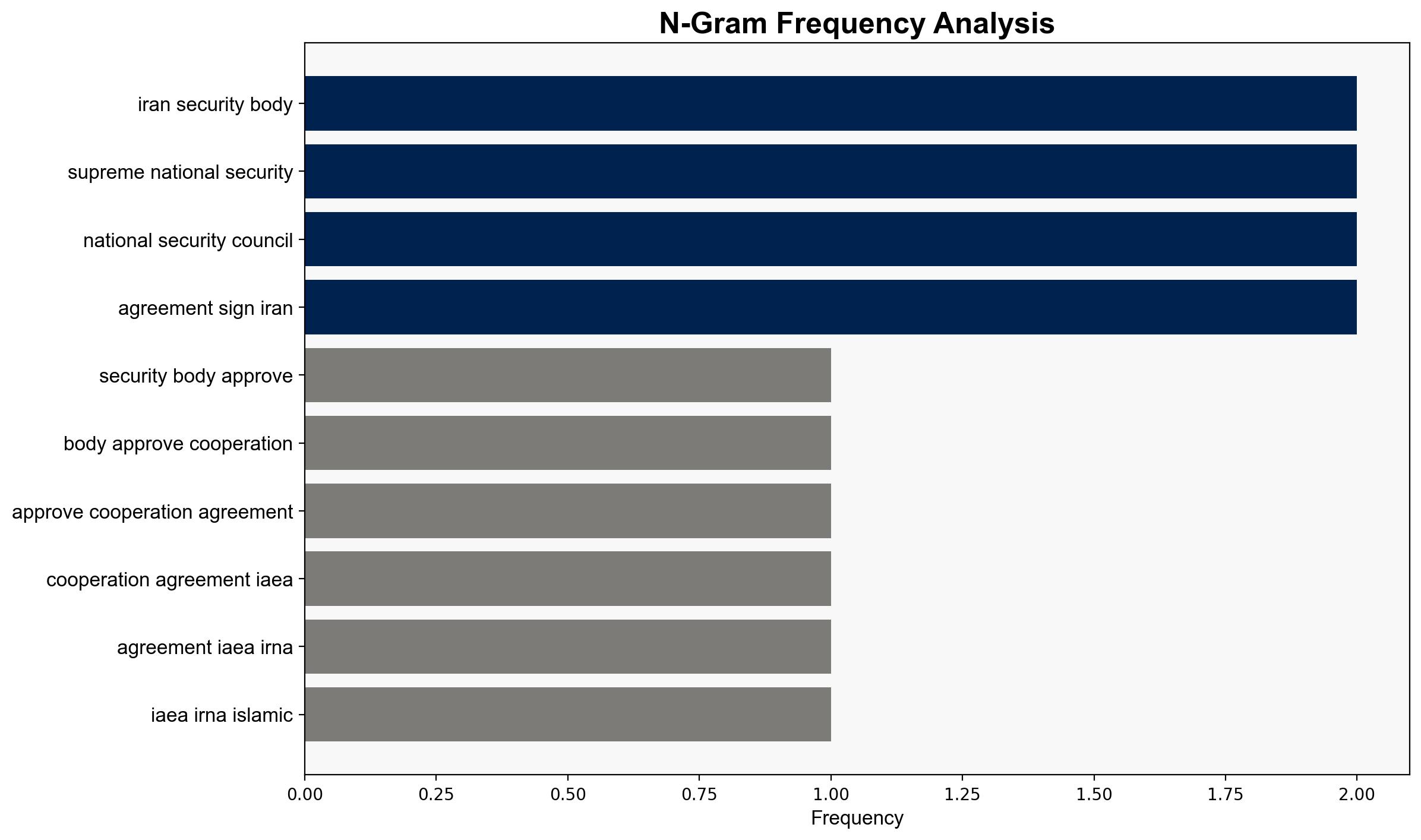Iran’s top security body says it has approved cooperation agreement with IAEA – Globalsecurity.org
Published on: 2025-09-15
Intelligence Report: Iran’s top security body says it has approved cooperation agreement with IAEA – Globalsecurity.org
1. BLUF (Bottom Line Up Front)
The most supported hypothesis is that Iran’s approval of a cooperation agreement with the IAEA is a strategic move to alleviate international pressure and potentially restore economic benefits under the nuclear deal. Confidence in this hypothesis is moderate due to the complexity of geopolitical dynamics and recent hostilities. It is recommended to closely monitor Iran’s compliance and the international response, particularly from the United States and Israel, to anticipate any shifts in regional stability.
2. Competing Hypotheses
1. **Hypothesis A**: Iran’s approval of the cooperation agreement with the IAEA is a genuine effort to comply with international nuclear standards and restore the nuclear deal, aiming to lift sanctions and improve its economic situation.
2. **Hypothesis B**: Iran’s agreement is a tactical maneuver to buy time and reduce international scrutiny while continuing its nuclear development covertly.
Using ACH 2.0, Hypothesis A is better supported by the explicit approval from Iran’s Supreme National Security Council and the involvement of high-level officials, suggesting a coordinated effort to engage with the IAEA. However, Hypothesis B cannot be dismissed due to Iran’s historical pattern of strategic deception and the lack of transparency in its nuclear activities.
3. Key Assumptions and Red Flags
– **Assumptions**: Hypothesis A assumes Iran is willing to comply with international norms and that the IAEA can effectively verify compliance. Hypothesis B assumes Iran is prioritizing strategic deception over economic relief.
– **Red Flags**: The timing of the agreement following recent hostilities raises questions about Iran’s true intentions. The absence of detailed terms of the agreement and the lack of independent verification are significant concerns.
4. Implications and Strategic Risks
The cooperation agreement could de-escalate tensions temporarily, but failure to comply could lead to renewed sanctions and increased regional instability. The potential for cyberattacks or military escalation remains if Iran’s nuclear facilities are perceived as threats. Economically, lifting sanctions could stabilize Iran’s economy, impacting global oil markets.
5. Recommendations and Outlook
- Enhance intelligence collection on Iran’s nuclear activities to verify compliance independently.
- Engage diplomatically with key stakeholders, including the EU and regional allies, to ensure a unified response to any non-compliance.
- Scenario Projections:
- Best Case: Iran complies, leading to restored economic relations and regional stability.
- Worst Case: Iran deceives, resulting in military conflict and economic disruption.
- Most Likely: Partial compliance with ongoing international scrutiny and diplomatic negotiations.
6. Key Individuals and Entities
– Abbas Araghchi
– Rafael Grossi
– Supreme National Security Council of Iran
– International Atomic Energy Agency (IAEA)
7. Thematic Tags
national security threats, nuclear proliferation, regional stability, international diplomacy




